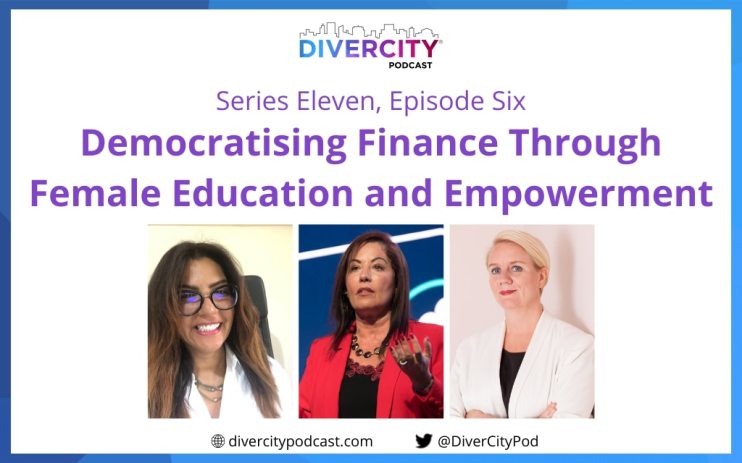
How women are empowering Africa

Technology is powerful. It is the tool that empowers innovation, and in turn, enterprise that unlocks economic potential. In parts of Africa, young tech-enabled women are on the cusp of seizing opportunities within the space, with blockchain technologies set to play a major role.
In the latest DiverCity podcast, we discuss how technology can empower female businesses in Africa with Noha Shaker and Professor Monica Singer – two experts who say that these opportunities can help overcome existing challenges.
Noha is the founder and secretary-general of the Egyptian FinTech Association and the elected vice president of the Africa FinTech Network. Her work across the two non-profit organisations aims to democratise finance, making it more accessible to those in the Global South.
She says that the number of small-to-medium-sized businesses operated by women in Africa and the Middle East is less than 30% of all SME’s because there is a “misconception that lending to women is associated with higher risk”.
Despite this, studies in Lebanon have shown that “loans that women could not pay back is around 3% less than the average of the non-performing loans percentage for the entire bank portfolio,” she says.
Professor Monica Singer is the South African lead at blockchain tech firm ConsenSys and specialises in how technology can empower those who have been left behind by the legacy financial world. She has long been at the forefront of efforts to digitise South Africa’s financial sector.
Monica says that the young demographic in Africa is primed to capitalise on the blockchain movement, resulting in a fairer, more democratic financial system.
“There is a high use of mobile phones by the youth in Africa and many service providers are working on products that will not even need data to access the internet,” she says. “So just imagine the combination of a younger generation with mobile phone and internet access, just all of those combined will tell you that this is the time of Africa, because we don’t need to duplicate what was done in the West.”
Aligning this demographic with blockchain technologies will require a lot of education, yet the rewards may be substantial.
Monica says that those underserved by the existing financial world due to a lack of formal education or address, can now become part of the system, improving financial literacy and access to services.
“Blockchain is the technology that is going to empower,” she says.
And while integrating technology into the African economy may improve accessibility, it will also allow the global economy to invest in Africa, especially within groups currently underrepresented within the business community. Similarly, the proliferation of young, technologically minded people in Africa will open the door to employment and business opportunities.
“You can become a programmer and work for any company in the world, no matter where you learn – you could be living in the middle of the Sahara,” says Monica.
“As long as you have access to a computer, you can work for a leading blockchain technology company. You can empower kids that are living in the townships, or anywhere, to actually participate in the global economy and that is amazing.”
But integrating technology into Africa’s evolving economies, as well as the start-up culture, presents other challenges, particularly in how underserved groups can capitalise on the opportunities alongside their peers.
Noha says that only 2% of all investments in African start-ups went to businesses run by women, despite women accounting for a third of all global wealth. To address this, she says that supporting female businesses, both with trade and investment, is vital to address the funding balance and to provide equal opportunities.
“Focusing on women and supporting them is not a choice, it’s more of an imperative. It has to be there, and social inclusion and financial inclusion are very much related,” she says.
But above all else, the opportunities that technology can bring to African economies is immense, and with that comes aspirational, futureproofed jobs that are available to women.
“The possibilities are endless because, truly, you can take any girl and convince them that this is the time that they should empower themselves by following this career,” says Monica.
“So that’s why our message is to tell young girls, you can do whatever you want. The information is available – encourage them, give them mentors, give them role models, give them the tools that we need to now start breaking the bias against women.”
There is clearly a long way to go, but energised recognition of the potential of these technologies alongside a renewed effort to support female-lead business will help accelerate the pace of change and deliver more enterprising opportunities for women across Africa.
To find out more visit the DiverCity website